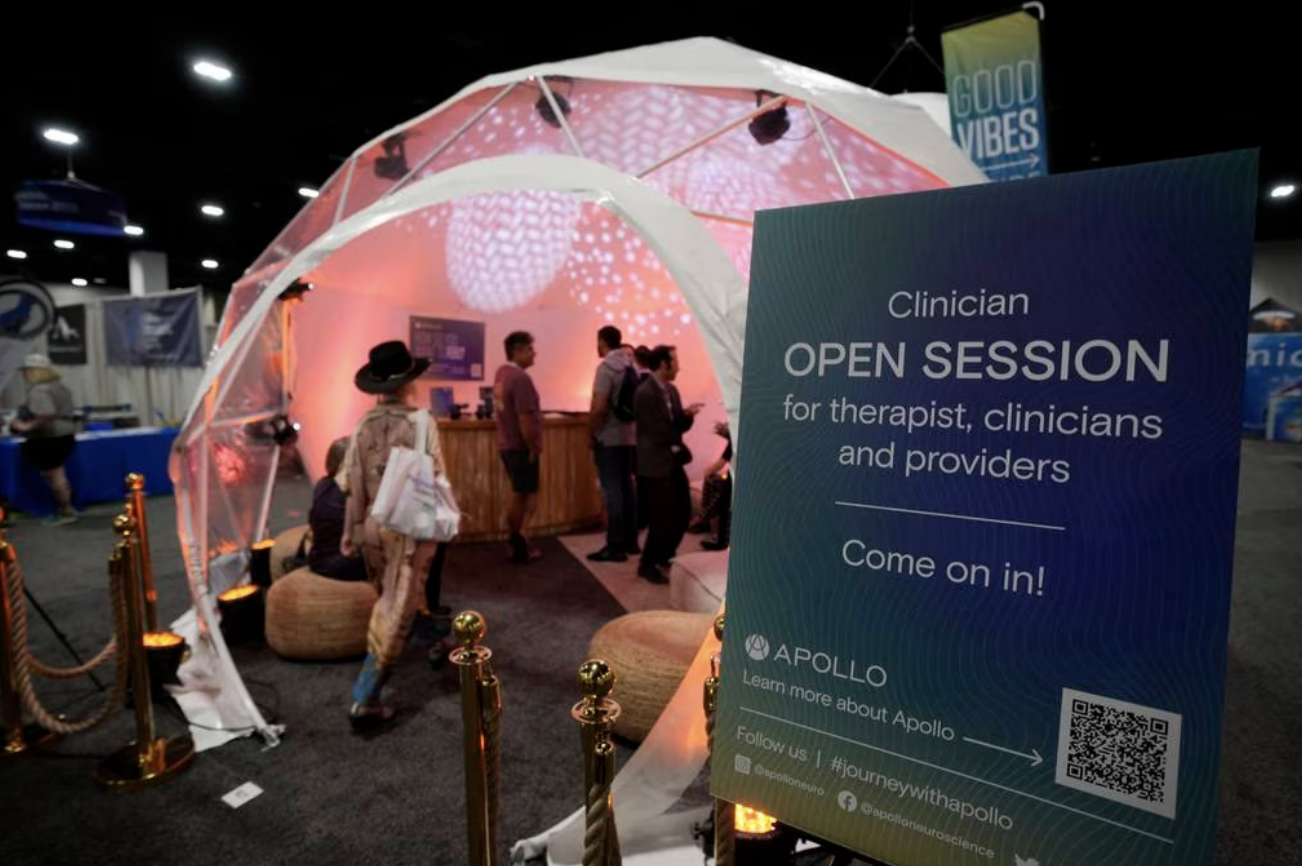The University of Maryland, Baltimore (UMB)’s schools of Social Work, Nursing, and Pharmacy launched an innovative Continuing Interprofessional Education (CIPE) series on Psychedelic Science and Therapeutics. This interdisciplinary initiative, led by experts from UMB's schools of Social Work, Nursing, and Pharmacy, is funded by a grant from the University's Center for Interprofessional Education. The series aims to educate healthcare professionals about the emerging field of psychedelic medicines and psychedelic-assisted therapy (PAT) for mental health treatment. By providing foundational knowledge in this rapidly evolving area, UMB is preparing the next generation of healthcare providers to understand and potentially incorporate these innovative approaches in mental health care.
Multidisciplinary Perspectives on the Science and Practice of Psychedelic Therapies
Co-hosted by the UMB Schools of Social Work, Pharmacy and Nursing
2024-2025 Speakers
Overview:
As research into the efficacy of psychedelic-assisted therapies (PAT) to treat various mental health conditions expands, it becomes increasingly vital for the healthcare workforce to be knowledgeable about the science, clinical practices and regulatory aspects of this emerging field. This workshop series addresses the urgent need for trained healthcare professionals who understand the latest clinical research evidence on the benefits and potential risks of PAT, ethical considerations in the delivery of harm reduction and PAT clinical practices, and the rapidly changing policy, legal, and insurance landscapes that affect health care providers and the delivery of PAT services.
This Continuing Interprofessional Education series equips participants with foundational knowledge in the history and psychopharmacology of psychedelics; the state of clinical research findings about the efficacy and risks of Psychedelic-Assisted Therapy (PAT) for different psychedelic compounds and specific mental health conditions; access, social justice, and diversity issues related to the delivery of psychedelic therapies; harm reduction methods for integrating this knowledge into existing clinical practices; and the legal landscape for healthcare providers.
This workshop series is designed for health professionals interested in expanding their knowledge and competencies in psychedelic science and therapeutic practices:
- Nurses
- Pharmacists
- Social Workers
- Licensed Clinical Professional Counselors
- Psychologists
- Medical Doctors
- Clinical Research Evidence: Participants will gain foundational knowledge about the current state of research findings with Psychedelic-Assisted Therapies (PAT) using Ketamine, MDMA and Psilocybin and the implications for the future of addiction, trauma, depression, and pain and palliative care treatments.
- Regulatory Landscape: Participants will gain a comprehensive overview of the current U.S. and global regulations surrounding psychedelics and understand the implications of evolving psychedelic laws for healthcare settings and equitable access to PAT services.
- Harm Reduction Strategies: Attendees will explore best practices and ethical considerations essential for practitioners operating within the psychedelic ecosystem, focusing on minimizing risks while maximizing therapeutic benefits.
- Equitable Access and Cultural Humility: The series will examine the history and indigenous use of psychedelic compounds, key social justice and mental health care access challenges with the medicalization and scaling of PAT services, and the roles and responsibilities of the health professions in addressing these challenges from a stance of cultural humility to ensure inclusive care that respects diverse backgrounds and identities.
- Practical Applications: Through discussions and group exercises, participants will learn how to apply insights learned from workshop presenters to their clinical practices and healthcare settings.
The Task Force is to study: existing laws, policies, and practices relating to the use of natural psychedelic substances; the best available science and data on public benefits of responsible access to and use of natural psychedelic substances; and opportunities to maximize public benefits of responsible access to and use of natural psychedelic substances. Also to be evaluated are the best available data on potential risks of access to and use of natural psychedelic substances; opportunities to mitigate potential risks of access to and use of natural psychedelic substances; and barriers health care practitioners and facilitators may encounter relating to natural psychedelic substances, including barriers relating to insurance, restrictions by licensing and credentialing entities, zoning, advertising, and financial services.
Recommendations by the Task Force will cover any changes to State law, policy, and practices needed to create a Maryland Natural Psychedelic Substance Access Program that enables broad, equitable and affordable access to psychedelic substances. uch changes may involve permitting requirements for education and safety; access to treatment and regulated support; and production of natural psychedelic substances. Additional rcomendations may relate to a transition from criminal conduct with natural psychedelic substances, including punishment with civil penalties for nonviolent infractions to plant, cultivate, purchase, transport, distribute, or possess or otherwise engagem with natural psychedelic substances. They also may extend to expungment of records of Marylanders with convictions for nonviolent criminal offenses relating to these substances; and release of Marylanders incarcerated for nonviolent criminal offenses relating to them.
Learn More About the Maryland Task Force On Responsible Use Of Natural Psychedelic Substances
Taskforce Members
|
Andrew Coop, PhD
|
 Candace Oglesby, LCPC, KAP Candace Oglesby, LCPC, KAP |
|
|---|---|---|
|
|
Upcoming Events
News

UMB hopes to educate public and professionals about psychedelic therapies
UMB hopes to educate public and professionals about psychedelic therapiesJanuary 15, 2025 | Sheilah Kast, Melissa Gerr

UMSOP Pharmaceutical Scientist Appointed Chair of Maryland Task Force on Natural Psychedelics
UMSOP Pharmaceutical Scientist Appointed Chair of Maryland Task Force on Natural PsychedelicsDecember 03, 2024 | Becky Ceraul
Addiction and Psychedelic-Assisted Therapies: Knowledge, Attitudes, and Training Needs of the Social Work and Nursing Workforces
and Training Needs of the Social Work and Nursing Workforces
.jpg)
Interprofessional Education Series Explores Psychedelic Therapy Landscape
Interprofessional Education Series Explores Psychedelic Therapy LandscapeOctober 09, 2024 | Lorri Angelloz
.jpg)
Grant Launches ‘Foundations of Psychedelic Science and Therapeutics’ Continuing
Grant Launches ‘Foundations of Psychedelic Science and Therapeutics’ Continuing Interprofessional Education SeriesSeptember 11, 2024 | Lorri Angelloz

The Psychedelic Renaissance Can’t Achieve Its Aims Without Social Workers
The Psychedelic Renaissance Can’t Achieve Its Aims Without Social WorkersNovember 08, 2023 | Osmosis Podcast, Dr. Megan Meyer

Psychedelic-Assisted Therapy is Undergoing Renaissance; We Must Prepare Social Workers.
Psychedelic- assisted therapy is undergoing renaissance; we must prepare social workers.July 07, 2023 | Megan Meyer & Victor Cabral




.png)


.jpg)
.png)

